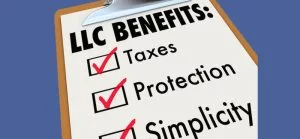The United States is awash in lawsuits. And the harsh reality is that the more assets you have, the more of a target you are; therefore, the more you need asset protection planning. Whether you have personal or business assets, you can be hit by a whole host of lawsuits. As a result, you can lose some or all of them when litigation strikes. So, what steps do you take to protect assets from lawsuits? That is what this article will discuss.
Anyone can get sued—even you. It is best to make sure take some protective measures. Put them in place in case a lawsuit comes your way. The most important part is that you do not wait to implement these protections. Act right away. Once a lawsuit begins, it will look like a last minute transfer on your part. So, it is best to hold your assets inside of the proper legal tools before the “bad thing” happens. If you wait until the last minute, you still have options but you need to make sure to use the proper legal tools.
Here are five or the most important steps to take when protecting your assets from lawsuits.

Step 1: Asset Protection Trust
An asset protection trust is one of the most powerful asset protection tools available. When someone sues you, putting your assets into the proper type of trust can tie the hands of your legal opponent. Let’s say you’re in a profession where malpractice lawsuits are common (like a medical doctor or financial advisor). Setting up a properly structured asset protection trust is incredibly important. It’s worth investing in the proper structure.
For personal and business assets, don’t let “umbrella insurance” give you a false sense of security. That is because a high percentage of lawsuits are for far beyond the coverage limits. One unfortunate soul we just spoke with had a $3 million policy but a $28 million malpractice suit on his hands. So, insure yourself, but protect yourself beyond insurance. Plus there are so many exceptions in today’s insurance policies. The first thing insurance companies typically do after a claim is to look for loopholes as to why the policy states they aren’t obligated to pay. If given the choice between an insurance policy and an offshore trust, the latter is often much more effective.
Why Offshore Asset Protection Trusts?
Why do offshore asset protection trusts work so well? Keep in mind that U.S. assets are under the jurisdiction of U.S. courts. There are asset protection trusts in the U.S. But the strongest case law history rests with an international trust. If you do a Google search you will see that the strongest banks in the world are located outside of the United States, not inside. So, trust the data, not your personal experience. The data shows that setting up an offshore trust is often your strongest form of asset protection.

Step 2: Separate Assets – Corporations & LLCs
There are a couple of things you can separate. You can separate your personal assets from your business assets. Plus, you can separate your assets from those of another person, such as your spouse.
If your business is unincorporated (such as a private psychotherapist), we call this a sole proprietorship form of business. Or perhaps you are in a general partnership, which means you and another person are in business together. In both cases, your personal assets and business assets are one in the same. What does this mean? Suppose a patient or client sues you for malpractice or your business is taken to court for an employee sexual harassment claim. It means that if you own your business in one of the above manners, a lawsuit like one of the ones we mentioned can take your personal assets away from you. There are ways to avoid this. For example, operate your business as a limited liability company (LLC) and the company can protect your personal assets. When your business is sued, your personal assets can be shielded from business liability.
Corporations Vs. LLCs
That is why it’s best from a legal perspective, for you to operate your business as a corporation or a limited liability company. With a corporation, you can separate your business and personal assets from one another. It is more difficult for your personal assets to be taken away from you in the event that your business is hit with a lawsuit. Limited liability companies (LLCs) are similar to corporations, but with one advantage: charging order protection.
So let’s say you lose a personal lawsuit and are a member (owner) of an LLC. The courts may award the creditor with a charging order that can attach to your portion of the company. Whatever you would distribute out of the company would go to the one holding the charging order. However, the one holding the charging order cannot force you to make a distribution. Since the one who has the right to receive the distribution must pay the taxes (Rev. Rul. 77-137), this means that your judgment creditor gets the tax bill but no money. This often encourages settling or the lawsuit not even happening in the first place. Plus, it helps you avoid paying a judgment should the plaintiff be successful.
Additional Options
When it comes to your assets and another person’s assets, it might be a good idea to keep them separate. The best example is if you’re married. If you have a joint account with a spouse, half of that money belongs to your spouse. In the event that the marriage ends in a divorce, this could become a problem for you. If you think this might be a possibility some day, it could be in your best interest to keep your assets separate. The best choice might be holding assets in a Nevada or Wyoming limited liability company. Better yet, set up a Nevis LLC, which is an international LLC formed in the Caribbean island of Nevis.

Step 3: Utilize Your Retirement Accounts
If you have a 401(k), you might want to consider moving some cash into it. Individual retirement accounts (IRAs) enjoy protection under federal law as long as they are ERISA-qualified (such as a 401(k)). Your IRA might have even more protection depending on your state’s laws. If your IRA has good protection where you live, moving cash into the account might be a good idea, within the annual contribution limits. That is one big drawback. There are limits to the amount one can contribute to retirement plans each year. So, do this wisely. You must understand the complexities surrounding IRAs first—seek help from an attorney or accountant. We have attorneys on staff who might be able to help.

Step 4: Homestead Exemption
Home equity (value of your home less loans/liens secured by your home) can have a lot of protection via homestead exemptions, depending on the state. Some offer more than others. Certain states offer unlimited protection (except, perhaps, for in bankruptcy), such as Florida, Texas and Kansas, but others do not. If your state provides a big homestead exemption, then you may want to consider contributing more principal to your mortgage payments.
You should also consider how your property is titled. Suppose you own a home with another person. If that person is your spouse, some states offer ownership as tenants by the entirety. In such an event, both you and your spouse have an equal and undivided interest in the property. This means that if one of you is sued, the other one cannot be made to sell his or her interest in the home. Keep in mind that that only some states allow this. In addition, when it comes to homestead protection, it only applies to personal residences. The bottom line? It’s important to know that the manner in which your property is titled may have an significant impact on a creditor’s attempt to seize it.
For both homestead exemptions and titling, research your state’s laws.

Step 5: Eliminate Your Assets
If you don’t have assets, no one can take them away. You can transfer ownership of an asset to a legal tool such as an offshore asset protection trust, as discussed above, which you or family members can access. If you’re in a profession that tends to attract malpractice lawsuits, this might be something you want to do sooner rather than later. Why wait until a lawsuit strikes and a judge freezes your assets? At that point there might be nothing we could do. So, when it comes to asset protection, being proactive pays big dividends.

Asset Protection from Lawsuits Summary
The more assets you have, the more protection you should seek, whether they are personal or business. Lawsuits with business partners can take personal assets as can personal events such as divorce and foreclosure. And one is well-advised to protect business assets from threats like malpractice lawsuits before they occur.
No one should assume he or she will never be sued. Lawsuits happen all the time. It is important to understand what the types of risks that can come flying at you out of nowhere. For example, there is employment discrimination to personal guest liability. There are car wrecks where someone sues you for more than your insurance coverage. It happens every day.
So, understand what actions you can take before a lawsuit occurs. These include setting up an asset protection trust, fully insuring yourself, separating your assets, utilizing your retirement accounts, considering legal tools that protect your home and property, and even eliminating your direct ownership of assets entirely through the use of asset protection trusts. But the most important thing to remember is that you should not wait to protect your assets. Once a lawsuit strikes, you will look a lot better in the court’s eyes if you set up your legal fortress before the battle arises.



